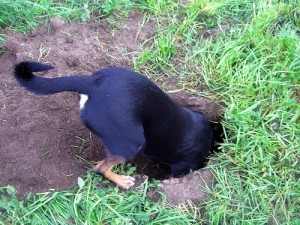 I had spent at least six hours with the clients over several months, strategizing about extracting them personally from a cratering business situation, when he said, “Oh, I haven’t told you about…”
I had spent at least six hours with the clients over several months, strategizing about extracting them personally from a cratering business situation, when he said, “Oh, I haven’t told you about…”
Others at the meeting said my eyes popped and I’m sure my face fell.
He owned another business corporation, which had assets, filed tax returns, and stood utterly apart from the holdings we’d been dealing with.
Now, what possessed him to overlook this entity over such a protracted period of time I cannot say. Stress perhaps. Other issues threatened to bite, while this corporation was perhaps an opportunity without (yet) troubles.
But it fed into a theme in my professional life last week: unexpected assets.
Another client in a second or third meeting last week came round to owning up to title to the corporation’s domain names, some trade marked intellectual property, and a potentially valuable customer list.
So, the call today is to keep digging as you look for assets.
Business wrinkles
The usual suspects, if you will, are business people, particularly if they have incorporated a business once operated as a proprietorship. Assets bought by the individual frequently don’t get transferred to the business entity. Or, for tax purposes, they create a separate entity to lease some asset or provide some service to the business.
When the business is a separate legal entity, it often owes the shareholders for loans, funds advanced, use of individual assets.
Wait, wait, there’s more
But it’s not just business folk who hold unexpected assets. At the Northern California Bankruptcy Forum, Folsom bankruptcy attorney Gary Gale presented a confidence-shattering list of things to ask about not in my current client patter.
And another presenter, who works for trustees, talked about accessing Google Street View and Google Maps to see what was visible on the debtor’s property. He reported finding tractors, multiple unlisted vehicles, livestock, and outbuildings containing who-knows-what.
Get better digging implements
If we assume that it’s inattention or distraction, not the desire to deceive, that leads clients to omit stuff, then we have to become good listeners and linguists.
Listen for the clues to activities or locations not yet mentioned. Scour the tax return for depreciation on things you haven’t heard about, the paystub for deductions you can’t identify.
Widen your vocabulary. My friend Charlotte bankruptcy attorney Susanne Robicsek memorably tells about asking a client if they had a couch in their living room. No, the client replies. A davenport? No, again. A sofa? Oh, yes, we’ve got a sofa.
So, don’t take “no” as the final word.
Less than obvious assets
Let’s start a list of assets that may elude us:
- Accrued vacation pay
- Paypal accounts
- Insurance claims
- Class action membership
- Health savings accounts
- Liquor licenses
- Timeshares or vacation club points
- Claims for as yet unreimbursed business expenses
- Domain names and websites
- Trade marks or trade secrets
- Book royalties
- Renewal commissions
- Realtor commissions on pending transactions
- Loans made to closely held businesses
- Vested rights in trusts and estates
- Stock or options in companies not (yet) public
- Business leases in the individual’s name
- Season tickets
- Airline tickets or paid for vacations
- Security deposits for utilities or rentals
- Legal claims not yet filed
Keep digging. There are undoubtedly more.
Image courtesy of Mary MacTavish.








Very timely. At a final-review-and-sign meeting last week, as I asked about current bank account balances, my client added that she had a paycheck at home that she hadn’t deposited.
I ask about cash under the mattress (The Bank of Serta).
I also ask about family jewelry which some immigrant cultures don’t see as assets of the present possessor, but as belonging the family, and succeeding generations.
I had some unusual ones last week too: (1) a lease in a rent-controlled
apartment in San Francisco and (2) a lease for a space at a mobile home park.